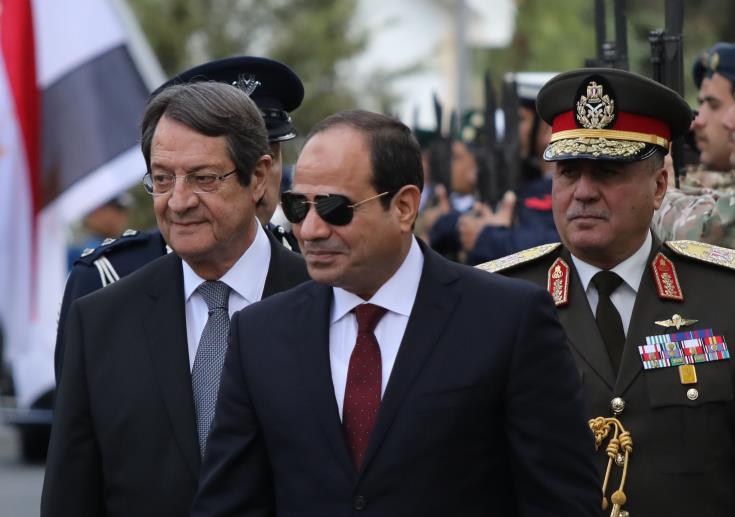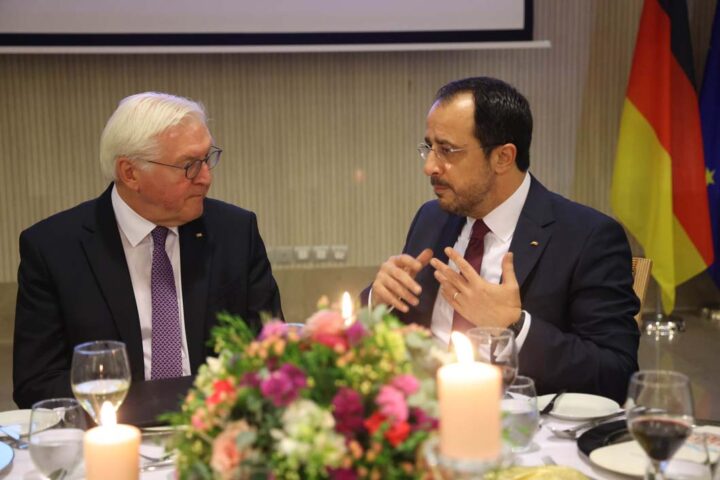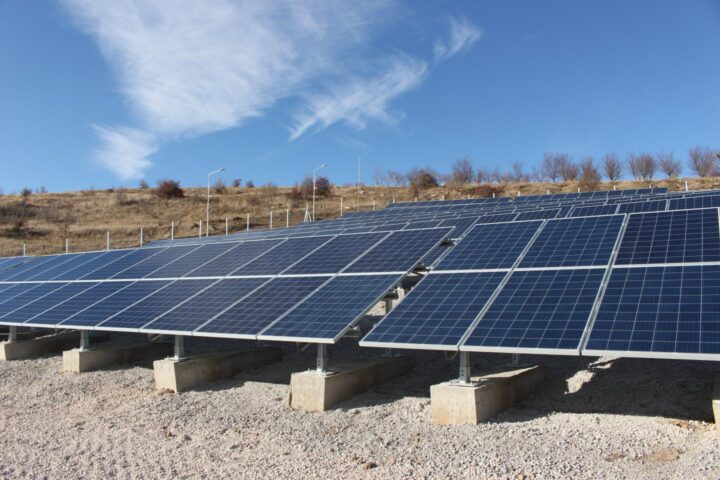When the energy ministers of seven states signed the foundation charter this week to elevate the East Med Gas Forum from a discussion platform to a fully-fledged body of cooperation, few realised this has the makings of establishing a far-reaching alliance to help untangle some age-old conflicts.
Egypt has rightly taken the initiative to jump into the driving seat of this Mediterranean cooperation, that could develop on the model of the Gulf Cooperation Council, only instead of a regional intergovernmental political and economic union, the new Forum should aim to safeguard energy, as well as commercial interests, at all cost.
After all, apart from doubling the capacity of the Suez Canal that channels a colossal amount of global sea trade, Egypt also aspires to become an energy hub between Europe and Asia, through its oil and gas discoveries, and electricity interconnectors it is building to Europe via Cyprus, east over Saudi Arabia and south to the rest of Africa.
Lebanon and someday, Syria, are the only missing components of the Forum comprising Egypt, Cyprus, Greece, Israel, Italy, Jordan and Palestine, while France also retains the right to claim a seat, as for decades it has been at the forefront of building bridges between southern Europe and northern Africa.
Besides, France and Italy are the two leading EU member states that have a vested interest in developing and safeguarding energy resources in the region, and their involvement should be more proactive, allowing to maintain a balance.
Naturally, Turkey will continue to be the troublemaker in the neighbourhood, egged on by Russia that simply does not want to see any other cooperation between any country in the region.
Which is why the new forum and soon-to-become alliance, should have maintained a harsh tone with Ankara, saying from the outset that the new cooperation ‘is’ aimed at third countries, as long as Turkey continues to behave the way it does.
Turkey is already in trouble with the Islamic State, which it initially favoured, continues to support the Islamic Brotherhood in Egypt and extremists in Gaza, is brotherly towards the Gulf’s rogue Qatar.
It is now playing with fire in Libya, sending ‘peacekeeping’ forces with Moscow’s blessing and soon with new Russian weaponry.
How long Ankara can maintain so many open fronts before these turn against them, only depends on the West’s tolerance of the situation.
France wants to enhance its influence in the world and is now trying to steer European defence and geostrategic policy.
Italy needs to re-establish itself as a force to be reckoned with but requires a stronger naval presence to control the migrant flow into Europe.
Greece must back down from its newfound enthusiasm, at the cost of sacrificing the energy security of Cyprus, and Israel should be clear on whether it has truly cut off its ties with Turkey, or does it still hope of kissing and making up with Ankara, as many want it to, by supporting Turkey’s satellite Azerbaijan.
If this discussion forum is to grow and become a proper platform for cooperation, it first needs to rename itself East Med Energy Forum, as by focusing solely on natural gas could condemn it to failure even before it starts.
Once this has cleared up, mutual understanding, respect and cooperation, should be high on the agenda.
Only then will it become more than a natural gas cartel, with all the pros and cons that depict the crude oil body, OPEC, where global energy interests and future revenues, more than often help overcome historic and ideological differences between members.










